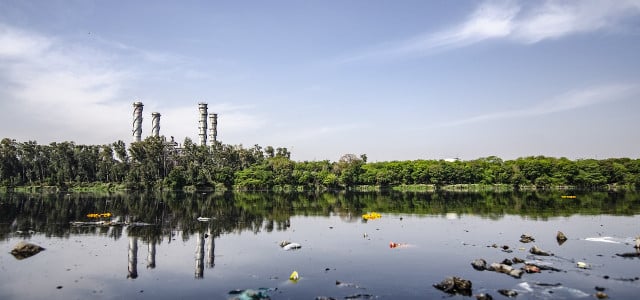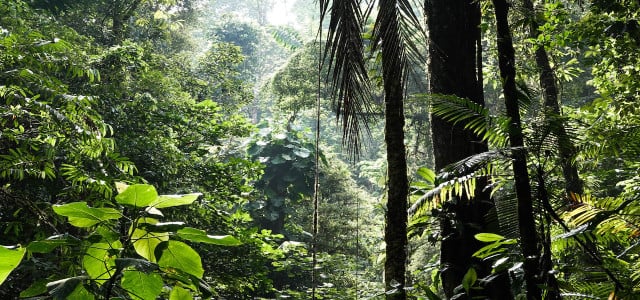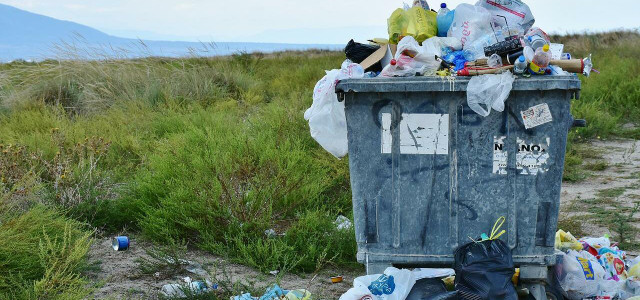Human activity has far-reaching environmental consequences, and water pollution is a major concern. Here are the 10 biggest causes of water pollution we need to get under control.
With a growing global population and expanding industrialization, addressing the causes of water pollution and reducing and reversing their ecological effects have never been more crucial. We’ll discuss the main causes of water pollution and take a look at what can be done about them.
1. Industrial Waste
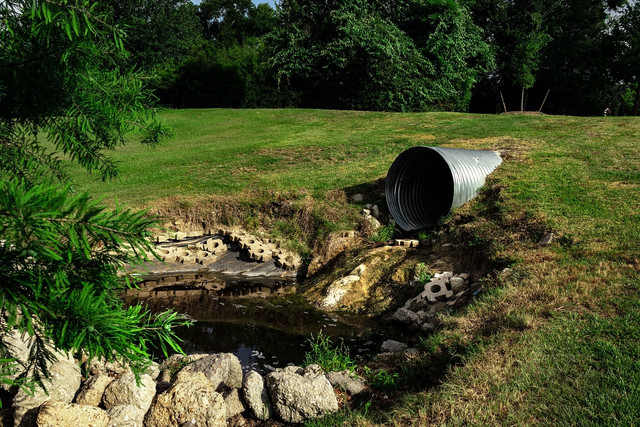
Heavy industry produces a tremendous amount of toxic chemicals and pollutants like arsenic, lead, mercury, sulfur, nitrates and asbestos, among others. Many industries, not having adequate waste management systems, expel these substances into nearby canals, rivers and oceans.
Such chemicals can increase the mineral level—a process called eutrophication—leading to algal blooms that starve water of oxygen and create dead zones. Chemicals that enter water bodies can also alter the water temperature and pose a severe hazard to local aquatic wildlife including fish, birds and amphibians.
2. Sewage
The average US household’s sewage and water waste is typically chemically treated and released into water bodies along with fresh water. This toxic concoction is a significant cause of water pollution, leading to pathogens, bacteria, and chemicals in waterways and serious health problems and diseases in humans and animals.
Microorganisms in water supplies are frequently responsible for outbreaks of disease. Polluted water can become a breeding ground for insects that act as carriers—like mosquitoes, which can spread malaria.
3. Causes of Water Pollution: Marine Dumping
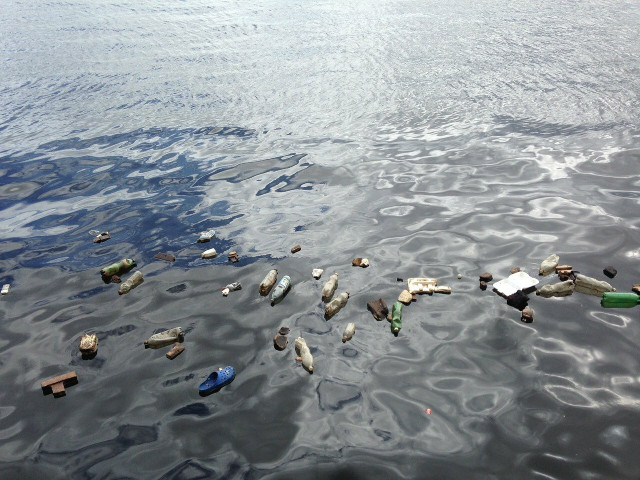


Another significant cause of water pollution is household garbage. That includes paper, plastic, food scraps, aluminum, rubber and glass. Man-made materials can take incredible amounts of time to break down in the environment, if ever. The worst of these offenders is, of course, plastic, which is a primary cause of concern for environmentalists since it only breaks down to create incredibly damaging microplastics that can never be removed from our ecosystem.
For more information about marine plastic issues, read: Plastic Pollution in the Ocean: What Can I Do About It?
4. Pesticides & Fertilizers
Farmers use chemical fertilizers and pesticides to protect crops from insects and bacteria and produce a higher crop yield. However, the unregulated or careless use of these products is a primary cause of water pollution and is harmful to plants and animals. Natural rainfall can also wash these chemicals into water bodies, where they cause untold damage to local wildlife and coral bleaching.
5. Causes of Water Pollution: Urban Development
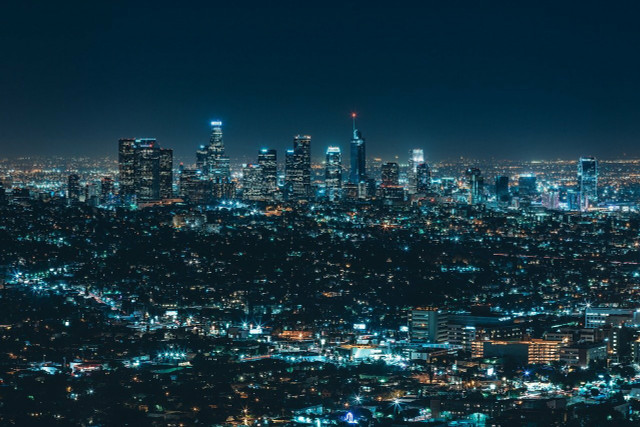


Urban development is another of the biggest causes of water pollution. As the population grows, so does the demand for housing, food and energy. Expansion of urban centers means more fertilizers used in food production and increased soil erosion due to deforestation. Add that to a rise in construction activities, inadequate sewage systems, larger landfills and waste from expanding essential industries—understandably, water quality is deteriorating.
6. Landfills
Aside from the smell, landfills can be damaging to local waterways. Rainstorms and adverse weather conditions can cause landfills to “leak.” That means the toxic, pathogen-loaded runoff contaminates lakes, oceans and even drinking water with a host of nasty pollutants.
7. Causes of Water Pollution: Animal Waste
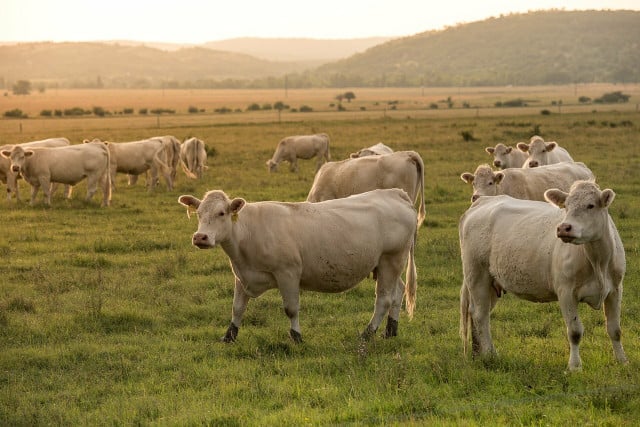


Waste produced by farming stock can be washed into rivers when it rains. It then mixes with other chemicals and can cause water-borne diseases like cholera, diarrhea, dysentery, jaundice and typhoid—just to name a few. High levels of animal waste in otherwise fresh water is just one downside of factory farming.
8. Oil Leaks
Oil spillage has long posed a significant threat to marine life, proving not only costly to the environment but also to local authorities tasked with the clean-up effort. Oil in aquatic systems creates irreparable damage and can never be entirely cleaned up. It’s also creating a new form of pollution called plastitar.
Aside from oil spills resulting from accidental mishaps, seaborne vessels of every type inevitably produce petrochemical waste—yet another inevitable cause of water pollution.
9. Causes of Water Pollution: Mining
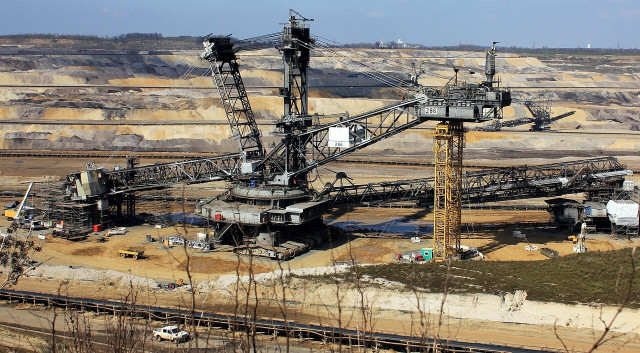


One of the worst offenders globally when it comes to water pollution is mining. Extracting raw minerals and ore from the Earth typically requires the use of heavy solvents and chemicals. It increases the number of toxic elements able to enter the water, which can result in problems for local flora, fauna and nearby communities.
10. Radioactive Waste
Nuclear energy is produced using uranium, which is a highly toxic element. Nuclear waste material needs to be disposed of correctly to prevent catastrophic and difficult-to-reverse damage to humans and the environment. However, given how unstable this model of energy production is, it remains a concern for us and our environment. Contaminated water from nuclear power plants is filtered and re-released into the environment, but the water still contains radionuclides, which may cause DNA damage to sea life.
Well-known examples of nuclear energy gone wrong include Chernobyl and Fukushima, where the long-term damage to the ecosystem and water supply is still being uncovered.
What Can Be Done to Curb Water Pollution?
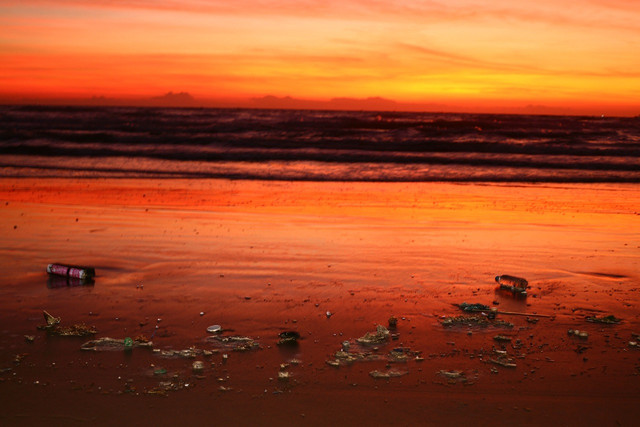


Given the sheer number of causes of water pollution, thinking about possible solutions can seem overwhelming. However, each of us can play a part in alleviating our overall waste output, helping to reduce water pollution in the process. Making efforts to live low or zero waste and reducing our overall consumption levels are good places to start.
1. Reduce Plastic Usage
Much of the plastic we use ends up as water pollution. Once in the ecosystem, it is nearly impossible to extract and safely dispose of. If you try to live a life without plastic, you will be doing your bit to help the environment. If you visit an area with a nearby lake, river or ocean, dispose of your trash carefully to give it no chance of entering the water. For help reducing your dependence on plastic, check out Utopia’s article Go Plastic-Free: How to use Less in 7 Easy Steps.
2. Recycle As Much As Possible
If there are two options for a particular item, try to pick the one that you can recycle. Glass bottles are much easier to recycle than plastic, for example.
3. Dispose of Toxic Chemicals Responsibly
Don’t dump chemicals like ammonia, bleach, paint and solvents down the drain. There are recycling centers and drop-off sites to dispose of hazardous wastes safely. While there is usually nothing wrong with consuming oils in your food or using them in skin care, it is a bad idea to dispose of grease, fat and used cooking oil in the sink. Instead, consider collecting excess oil in a container and throwing that in the garbage.
4. Shop to Stop Water Pollution
Avoid buying products that contain non-biodegradable or dangerous chemicals. Many producers sell non-toxic and biodegradable cleaners that are better for the environment. If you’re able to spend a little extra money on those products, it can help to reduce causes of water pollution.
5. Garbage Disposal
Many homes have a garbage disposal system in the sink, but try to minimize its usage. Sure, it can break down solid objects, but those can harm local water supplies. Some things you can’t put down the garbage disposal, so it’s best to throw them in the trash.
6. Use Environmentally Friendly Detergents
Use eco-friendly or homemade detergents, hand soaps and dishwashing soap. These are not hard to find or make and often cost the same as the more troublesome alternatives. Avoid common dishwasher mistakes and use it and the washing machine only when they are almost full. Using machines to clean one or two dishes or a few pairs of clothes is a waste of water. The less water you use during your domestic washing routines, the less pollution you create.
7. Avoid Pesticides
It is easy to keep your gardens vibrant and healthy without chemical herbicides or pesticides, and often it works out to be cheaper. If you are unsure where to start, talk with your local plant nursery or landscapers for some environmentally friendly natural pesticides to solve your particular issue.
8. Get Regular Car Maintenance
If you drive a truck, car or heavy farm machinery, have them regularly serviced by a trained mechanic. Oil and other fluids leak from motor vehicles and cause water pollution by ending up in the local water system, lakes, creeks, and rivers. Avoid adding to the problem by keeping your vehicles and equipment running smoothly and efficiently. Leaky seals, hoses and gaskets have the potential to create even larger mechanical issues, so replacing or repairing worn parts will save you money in the long run.
9. Use Water Sparingly
There are a few simple home habits that you can adopt to reduce adding to the causes of water pollution. Turn off the tap while you brush your teeth, opt for shorter showers and install water-saving shower fittings and faucets. Water-saving toilet systems are also becoming affordable, so consider pulling out that old system and fitting your home with a modern water-saving model instead.
Read more:
- 10 Mistakes That Keep Everyone From Saving Water
- 12 Things to Ban From Your Bathroom
- Are You Wasting Your Money With These Heating Mistakes?
Do you like this post?






